Hello everyone!
Not so long ago summer trainings finished in Saratov State University, and to make it easier to monitor the success of our programmers we introduced a feature to add custom ratings. Now you also have this opportunity!
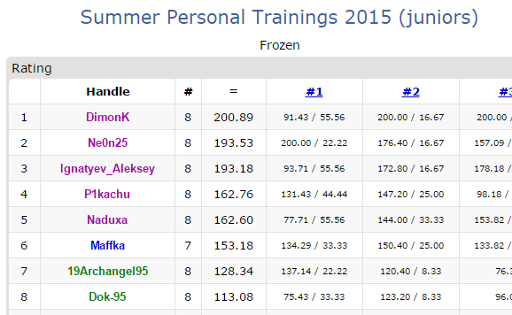
Currently rating is calculated as follows: overall rating is equal to the arithmetic mean of the ratings for each contest in which the user has participated. Contest rating depends on the ratio of problems solved by user and a number of problems solved by winner, as well as user's place in the contest. Also points for upsolving are added to the contest rating. There is a rumor that such method of calculating rating first was used in ITMO. More formally:

where
- R — contest rating,
- n — maximum of 50 and number of contest participants,
- place — 1-indexed used's place in the contest,
- solved — number of solved problems by the user,
- maxSolved — number of solved problems by the winner,
- upsolved — number of upsolved problems by the user,
- problemCount — total number of problems in the contest.
If a user participated in a team, his place equals to the place of the team in this contest.
To create a custom rating in the group you have to be its manager. There can be multiple ratings in one group with different sets of contests. There is a special button to create a rating in the group sidebar:
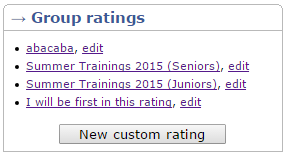
If you press the button rating creation form will appear:
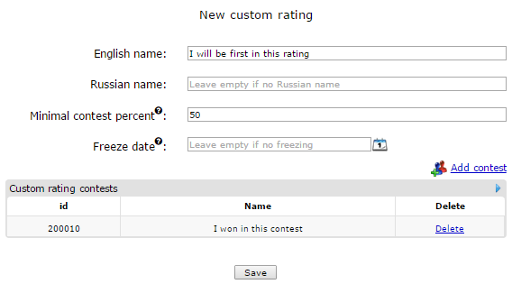
Users are added to the rating only if they have participated at least in the given percent of all contests of this rating. By default one have to participate in 50% of all the contests.
If you wish you can set rating freeze date: upsolving after that date will not affect the rating.
Also now you can view status in groups: it shows only submissions for the group contests.
Good luck with training in Codeforces groups!









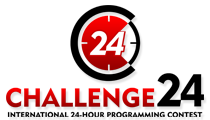
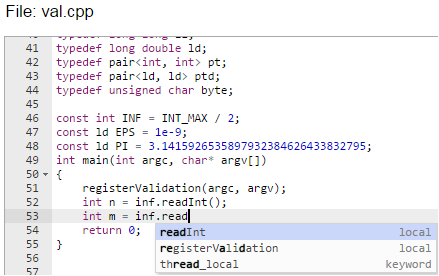
 And now, we invite everyone who haven't already participated in the championship to join the Codeforces training contest version
And now, we invite everyone who haven't already participated in the championship to join the Codeforces training contest version 
